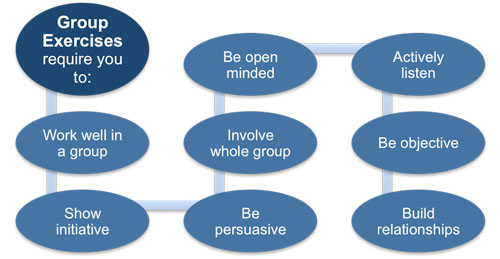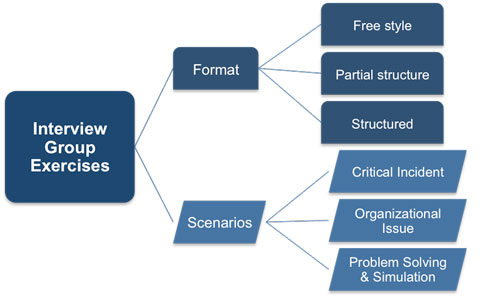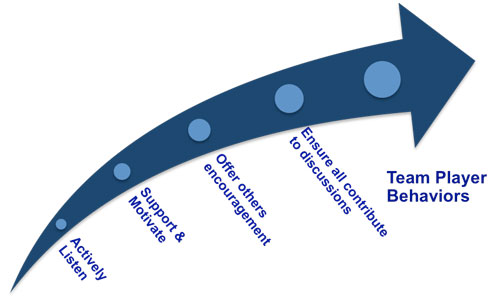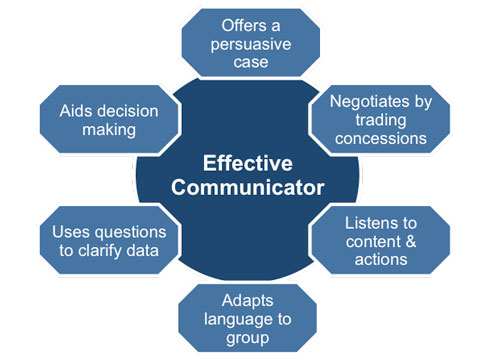Group Exercises
This assessment center exercise is most popular when the interview process involves several candidates being present for a whole day, as this offers sufficient time and numbers to make this type of exercise possible. Group exercises provide the perfect opportunity to assess how you interact with others, your natural role in a group, and your flexibility when working in a team.
A typical exercise will see you presented with a brief that describes the scenario you are to work in and the problem or issue that the group needs to resolve. In emotional intelligence terms, the group exercise enables you to demonstrate your level of self-management and relationship management at the level needed in the role.
 |
Practicing for this type of interview exercise is difficult. The best way to prepare yourself is to measure your level of emotional intelligence especially in the areas mentioned above. You also need to familiarize yourself with the culture of the organization so that you can illustrate its beliefs and ethos in your actions and words.
There are three basic formats used for group exercises of usually between 4-8 people.
1. The group is left to its own devices as to how it structures itself and attains its objective.
2. The group is given a partial structure. This means that each person in the group is set a specific task to lead.
3. A fixed structure is assigned to the group. Each individual is assigned a specific role within the group, e.g. chair, sales, finance, etc. These may or may not be assigned to match your skills. Either way the purpose of the exercise is to assess how well you work within a group in or out of your field of expertise.
Whatever the format, you need to quickly assess the skills and attitudes of the other participants and decide how best to work with them. If you have been given a role that is unfamiliar to you, then use the description in your brief to guide your behaviors.
 |
Remember: whatever role you play or have been assigned it is how you interact and aid the group in achieving its objective that counts. Always work within your brief and don't make assumptions or pretend to have more knowledge than the scenario demands. Don't worry if the scenario appears too complex to be resolved during the time allocated, the important thing is to be seen to work cooperatively towards a solution.
A common scenario is to present the group with a critical incident that they must respond to. The incident may be of an operational nature - for example, one of your suppliers has to recall a batch of its product which is a major component of your own product.
Another option is to give the group a strategic incident. This could be responding to an article in the press that describes instances where the organization has disregarded the environmental impact of its actions.
Another example would be that of an organizational issue, for example incorporating a new acquisition into your organization and how you would plan for the human resource implications.
The exact nature of a group exercise will reflect the nature of the role, but the behaviors you need to display are similar whatever scenario you are presented with.
Team Player - this is your only opportunity to show your skills in behaving as part of a team. You need to demonstrate that you are supportive of others in the group and motivate them with your enthusiasm to attain the group objective.
You can display this by ensuring that everyone has the opportunity to contribute. Often the quietest member just needs a small amount of encouragement to add their contribution to the discussion. Seek out opportunities to show that you are aware of the activities and contributions of others. This may be simply giving a smile and saying 'that's a great idea, does anyone want to add anything?' to encourage others.
 |
You will be assessed on how well the group interacts and divides up the tasks required. Your ability to identify others' strengths so that tasks can be assigned to those best suited to accomplish them will also be observed. A good team player is someone who demonstrates their ability to actively listen as well as talk, and doing so enables you to summarize things and get the group back on track when necessary.
Target Driven - this means keeping your focus on achieving the goal and resisting diversions, using persuasion and tact so that the whole group concentrates on using the facts in the brief to address the issue at hand. The part you play in ensuring that the group arrives at a consensus will be assessed.
Interpersonal Communication - is an essential skill to demonstrate in this exercise, as without effective communication the group will achieve very little. Facilitating effective and speedy decisions is vital because of the limited time available.
Assessing the most appropriate level of language to use or getting others to define the industry jargon they use can be an important part of this. This ensures that everyone in the group, regardless of background, has the same level of understanding of the issues at stake.
A group exercise will usually consist of several negotiations regarding resources, priorities, or how to approach resolving the issue presented. You should use these to demonstrate your powers of listening, asking questions, summarizing points of view, and presenting a course of action.
 |
Try to find common ground, ensuring that nobody is sidelined or becomes overly confrontational. The most important thing is to direct the decision-making process in a constructive and objective way. Don't become so focused on winning your point that you forget to listen and stop being a team player.
Analytical - this skill is an essential part of any decision making. How well you identify and interpret the key facts from the data supplied is critical. You will be assessed on how well you present your arguments. Are they clear and concise? This shows that you take a structured approach to a problem and have the ability to organize others to attain a goal.
To summarize, employers are looking for management skills, one of which is the ability to get the best out of your co-workers. Your social skills will be included in the assessment so listen to other people, be friendly, and participate. Employers don't usually want people who are withdrawn, or those who are aggressively dominant.
In group exercises try to forget the assessors; give your attention to the task and the group. You will be assessed on the quality of your contribution and how you relate to the other participants.
You may also be interested in:
Preparing for Interview Exercises | In-Tray or In-Basket Exercise | Role Play Exercise | Group Exercise | Presentation Exercise | Handling the Media Exercise.


